Hillary Clinton and the Fear of War With Russia
The candidate railed against Russian involvement in Syria, and for many this raised the threat that a Clinton presidency might lead to armed conflict with the second-largest nuclear power .The candidate railed against Russian involvement in Syria, and for many this raised the threat that a Clinton presidency might lead to armed conflict with the second-largest nuclear power.
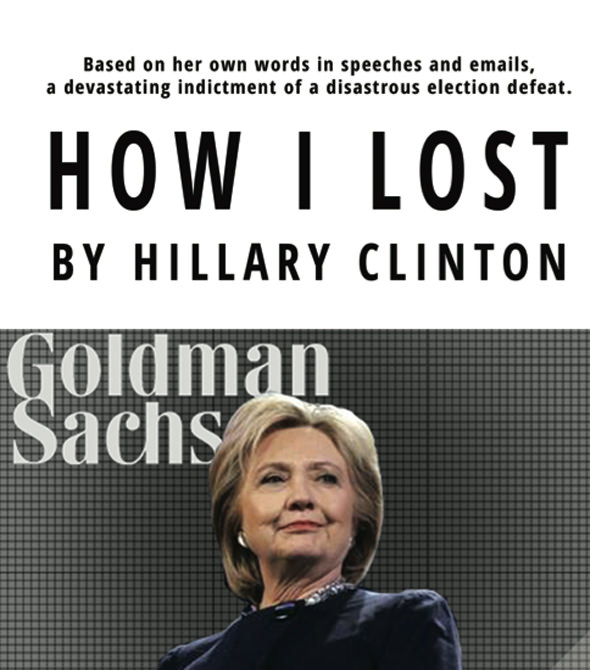
The cover of “How I Lost by Hillary Clinton.” (OR Books)
Editor’s note: The following is an excerpt from “How I Lost by Hillary Clinton,” introduced and annotated by Joe Lauria and reprinted by arrangement with OR Books. The book draws on the WikiLeaks releases of Clinton’s talks at Goldman Sachs and the emails of her campaign chief, John Podesta, as well as key passages from her public speeches. “How I Lost by Hillary Clinton” also includes extensive commentary by Lauria and a foreword by Julian Assange, editor in chief of WikiLeaks.
From remarks to Goldman Sachs in Bluffton, South Carolina, June 4th, 2013.
CLINTON: I would love it if we could continue to build a more positive relationship with Russia. I worked very hard on that when I was Secretary, and we made some progress with Medvedev, who was president in name but was obviously beholden to Putin, but Putin kind of let him go and we helped them get into the WTO for several years, and they were helpful to us in shipping equipment, even lethal equipment, in and out of out of Afghanistan.
So we were making progress, and I think Putin has a different view. Certainly he’s asserted himself in a way now that is going to take some management on our side, but obviously we would very much like to have a positive relationship with Russia and we would like to see Putin be less defensive toward a relationship with the United States so that we could work together on some issues.
We’ve tried very hard to work with Putin on shared issues like missile defense. They have rejected that out of hand. So I think it’s what diplomacy is about. You just keep going back and keep trying.
Hillary Clinton made these remarks before the eruption of the crisis in Ukraine the following year, which plunged U.S.-Russia relations into what seemed like a new Cold War, and three years before the neo-McCarthyite reaction to Russia’s supposed interference in the 2016 election. But she made them after her aggressive stance against Syria while secretary of state. On the 2016 campaign trail she railed against Russia’s involvement in Syria, raising fears that a Clinton presidency could lead to conflict with the second largest nuclear-armed nation.
Some background on recent U.S.-Russia relations seems to be in order. The events in Ukraine took place after Clinton left the State Department. As detailed in the Introduction, the U.S. helped engineer the violent coup of February 2014 that overthrew democratically elected president Viktor Yanukovych, prompting a Russian response. It was up to Clinton’s successor, John Kerry, to make the inflated and hypocritical accusation that Russia “invaded” Ukraine. “You just don’t in the 21st century behave in 19th century fashion by invading another country on completely trumped up pretext,” Kerry said after he had voted in the Senate for America’s actual full-scale ground invasion of Iraq just eleven years earlier. The U.S. has never provided convincing evidence of such a Russian invasion. In fact, German intelligence, unmasked as “dangerous propaganda” fabrications by Gen. Philip Breedlove, then head of the U.S. European Command and supreme commander of NATO forces, who told reporters on February 25th, 2015 that Russia had “well over a thousand combat vehicles, Russian combat forces, some of their most sophisticated air defense, battalions of artillery” inside eastern Ukraine.
“German leaders in Berlin were stunned. They didn’t understand what Breedlove was talking about. And it wasn’t the first time. Once again, the German government, supported by intelligence gathered by the Bundesnachrichtendienst (BND), Germany’s foreign intelligence agency, did not share the view of NATO’s Supreme Allied Commander Europe,” wrote the German magazine Der Spiegel. “False claims and exaggerated accounts, warned a top German official during a recent meeting on Ukraine, have put NATO—and by extension, the entire West—in danger of losing its credibility.” Breedlove then told the Frankfurter Allgemeine news- paper in November 2014 that there were “regular Russian army units in eastern Ukraine.” But just a day later he admitted to the German newsmagazine Stern that they were “mostly trainers and advisors.”
In March 2015, U.S. Lieutenant General Ben Hodges identified a “direct Russian military intervention” in eastern Ukraine. “Senior officials in Berlin immediately asked the BND for an assessment, but the intelligence agency’s satellite images showed just a few armored vehicles. … One intelligence agent says it ‘remains a riddle until today’ how [Hodges] reached his conclusions.”
From the start of the Ukraine crisis Breedlove said Russia had assembled 40,000 troops on the Ukrainian border and warned of an imminent invasion. “But intelligence officials from NATO member states had already excluded the possibility of a Russian invasion,” wrote Der Spiegel. There were perhaps even fewer than 20,000 troops on the border and they “had already been there prior to the beginning of the conflict.”
READ: How Hillary Clinton’s Goldman Sachs Speeches Cost Her the 2016 Election
None of this deterred Clinton. As a presidential candidate, she picked up the Russia as “aggressor” theme in Ukraine, even alleging that Moscow was an “aggressor” in Syria, though it was invited in by an internationally recognized government to help defend against a largely foreign-backed rebellion. After the U.S. won the first Cold War back in the early 1990s, Bill Clinton’s administration, with Wall Street banks such as Goldman Sachs in the lead, teamed up with Russian oligarchs to plunder the once state-owned economy.
The U.S. was in a unique position in history to bring progress to the world. Instead it pursued a furtherance of its rulers’ wealth and power at the expense of millions of people at home and abroad. Hillary Clinton today is at the center of this deception of pretending to deliver democracy and social progress to the majority, while doing the opposite.
Still further back, when the Second World War ended, there was fear that the U.S. would return to the Great Depression. But rather than making massive government investment in civilian industries, it was defense spending that saved the economy and became the basis of growth throughout a Cold War in which the Russian “threat’ ” was hyped to keep American Cold Warriors in power, armaments factories humming and profits pouring in. This came to an end with the fall of the Berlin Wall in 1989 and the subsequent collapse of the Soviet Union. Now, there was considerable money to be made by Western corporations and banks in the wide-open economy of a defeated Russia. None other than Goldman Sachs was hired by the Russian government to take the lead in bringing foreign investment into the country. The deal was signed for Goldman by Robert Rubin, a year before he became Bill Clinton’s treasury secretary.
A compliant Boris Yeltsin, whose re-election, ironically, was in no small part due to the interference in Russian domestic politics by American election advisers, opened the doors to carpetbagging American banks and businesses.
Returning to a peacetime economy during the Clinton administration for the first time since 1940 would have meant dismantling the military-industrial relationship that Dwight Eisenhower warned about. But instead, with the Pentagon and NATO struggling for meaning in the immediate post-Cold War era, a new enemy was found, first in Islamist extremism and then in Serbia during the Kosovo crisis.
Meanwhile the newly elected Vladimir Putin began to reassert Russian sovereignty. He forbid oligarchs from entering pol- itics and threw some in jail. Under President Dmitry Medvedev relations with the U.S. improved. It was just after this period that Clinton made the remarks above, in which she says she’d “love” better relations with Russia. The Goldman audience knew what she meant: allowing Wall Street to continue its major access to the Russian economy. But Putin was back and, as Clinton put it, “he’s asserted himself in a way now that is going to take some management on our side.” She still wanted better relations with Moscow but Putin has to be “less defensive toward a relationship with the United States.” By this time, Putin had raised Russians’ living standards, restored their pride and was riding huge favorability ratings.
The U.S. hides its intense interest in Russian markets and vast natural resources behind allegations of human rights abuses by Putin, for instance that he murders journalists and political opponents, allegations that may be true but are extremely difficult to prove. Russia has pro-Western liberal opposition politicians and several opposition newspapers that regularly and openly criticize Putin. Russia is not a model democracy—few countries are—but it has more freedom than many U.S. allies.
About a year before she made these remarks to Goldman Sachs, relations with Putin had soured when, in 2011, he blamed Clinton by name for stirring up anti-government protests in Russia. Clinton doesn’t mention this in her remarks. Rather, she accuses Putin of not cooperating on a missile defense system the U.S. later installed in Romania. The U.S. claimed the missiles were for defensive purposes against Iran but they could also be used offensively and Russia saw them as a threat. Putin next moved to eject American NGOs from the country, fearing they could stir up revolt to replace him with a Yeltsin-like figure. Relations plunged after U.S. involvement in the overthrow of Ukraine’s democratically elected president in February 2014, detailed in the Introduction. Clinton became a vocal critic of Russia, calling Putin “Hitler” after he acted defensively in Crimea.
Indeed, the Ukraine crisis appeared to be a neoconservative-inspired plan to provoke Putin. With the Western press full of stories about “Russian aggression,” NATO staged significant war games in 2016 with 31,000 troops on Russia’s Western frontier. For the first time in 75 years, German troops retraced the steps of the Nazi invasion of the Soviet Union.
“What we shouldn’t do now is inflame the situation further through saber-rattling and warmongering,” the then German foreign minister Frank-Walter Steinmeier told Bild am Sontag newspaper. “Whoever believes that a symbolic tank parade on the alliance’s eastern border will bring security is mistaken.” Instead Steinmeier called for dialogue with Moscow. “We are well advised to not create pretexts to renew an old confrontation,” he said, saying it would be “fatal to search only for military solutions and a policy of deterrence.”
A day after Steinmeier’s remarks, General Petr Pavel, chairman of NATO’s military committee, dropped another bombshell. Pavel told a Brussels press conference that Russia was not a threat to the West. “It is not the aim of NATO to create a military barrier against broad scale Russian aggression, because such aggression is not on the agenda and no intelligence assessment suggests such a thing,” he said.As the Ukraine crisis heated up, I was in a background press briefing with a senior European ambassador, who spoke on condition of anonymity, at his country’s U.N. mission in New York. I heard him describe Russia’s threat to Eastern Europe as “all hype” designed to give NATO “a reason to exist.” Speaking in public at Security Council meetings, this same ambassador would viciously attack the Russian “threat.”
Washington’s modus operandi is to continually provoke and blame an opponent until it stands up for itself, as Putin’s Russia has done, accuse it of “aggression” and then attack it in “self-defense.” In this way, Washington, with corporate media help, builds popular support for its own version of events and resistance to the other side of the story. Unfortunately this is not a new trick in the U.S. playbook.
“The statesmen will invent cheap lies, putting the blame upon the nation that is attacked, and every man will be glad of those conscience-soothing falsities, and will diligently study them, and refuse to examine any refutations of them? And thus he will by and by convince himself the war is just, and will thank God for the better sleep he enjoys after this process of grotesque self-deception,” wrote Mark Twain at the end of the 19th century.
There was an economic motive to the Ukraine putsch too. The U.S.-backed toppling of the Ukrainian president happened after he refused to accept an association agreement with the European Union and chose a Russian deal instead. The finance minister for the new coup government was an American, Natalie Jaresko, who was given Ukrainian citizenship on the day she began the job. The agrochemical giant Monsanto is just one of several America companies that have considerable commercial interests in Ukraine. Just weeks after the coup, Joe Biden’s son, Hunter Biden, together with a friend of John Kerry’s family, joined the board of Burisma Holdings, Ukraine’s largest private gas producer.
In their presidential debates, Clinton hit Trump hard with the allegation that Russia had hacked Democrats’ emails to help him win, calling him a “puppet of Putin.” She reinforced this with the claim that “17 intelligence agencies” backed up that conclusion.
Here she was referring to a statement by the Director of National Intelligence and Homeland Security, which gave no hard evidence of Russian guilt, saying only that it was consistent with “Russian methods.” A more authoritative National Security Estimate was never made. After he took office, intelligence agencies undermined Trump, leaking intercepts that implied wrongdoing in the election because some of his cabinet members had meetings with Russians. As of this writing, nothing in the way of firm evidence had been presented to back up these allegations. But the anti-Russian frenzy hit depths not seen since the McCarthy witch hunt.
Your support matters…Independent journalism is under threat and overshadowed by heavily funded mainstream media.
You can help level the playing field. Become a member.
Your tax-deductible contribution keeps us digging beneath the headlines to give you thought-provoking, investigative reporting and analysis that unearths what's really happening- without compromise.
Give today to support our courageous, independent journalists.
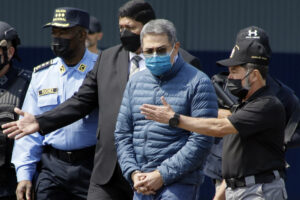
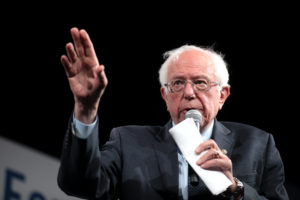

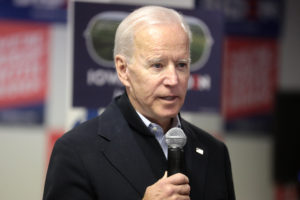

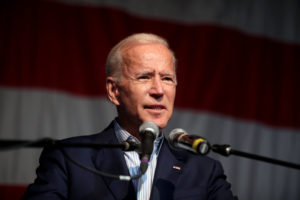
You need to be a supporter to comment.
There are currently no responses to this article.
Be the first to respond.